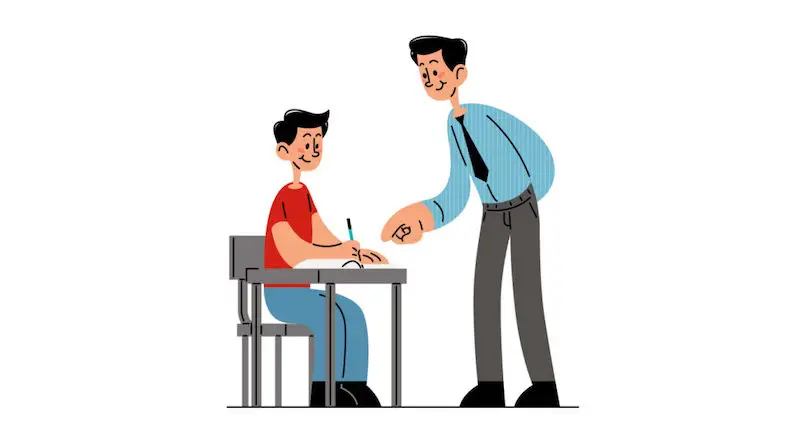Teachers play a vital role in shaping the future of their students. Their influence goes far beyond classroom lessons and textbooks. The words and values teachers share often stay with students throughout their lives. A good teacher does not just teach a subject; they teach confidence, discipline, responsibility, empathy and curiosity.
Here are some of the most important things teachers should tell their students. These lessons help students grow into confident, capable and thoughtful individuals.
1. You Are Capable
One of the most powerful things a teacher can tell a student is, “You are capable.”
Many students doubt themselves, especially when they face difficult subjects or tasks. When a teacher encourages them, it builds their self-belief.
Students often remember these simple words for the rest of their lives. Whether it is solving a tough math problem, reading in front of the class or trying something new, knowing that a teacher believes in them makes a huge difference.
Teachers should remind students that ability grows with effort. Confidence is not something a student is born with; it is developed through small successes, encouragement and continuous learning.
2. Mistakes Are Part of Learning
Students often feel embarrassed when they make mistakes. They worry about being judged, laughed at or punished. This fear stops them from asking questions or trying new things.
A teacher should explain that mistakes are normal, helpful and even necessary for learning. Every mistake shows what we need to improve. When students understand this, they become more comfortable participating in class.
Instead of fearing errors, they start embracing challenges. They learn to see mistakes as opportunities, not failures. This mindset helps them not only in school but also in real life.
3. Hard Work Pays Off
Talent alone does not guarantee success. Hard work, dedication and consistency are much more important. When teachers teach students the value of effort, students develop discipline and patience.
A student who works hard every day, even for a few minutes, goes much further than a student who relies only on natural talent. Teachers should explain that success is built slowly—through practice, revision, and persistence.
This lesson prepares students for life outside the classroom, where effort often matters more than intelligence.
4. Respect and Kindness Matter
A classroom is not only a place to learn subjects—it is also a small community. Respect and kindness are essential for creating a positive environment where everyone feels safe and valued.
Teachers should remind students to:
- Speak politely
- Listen without interrupting
- Help classmates
- Value different opinions
- Treat everyone with dignity
When students learn kindness early, they become better human beings. Respect builds stronger friendships, reduces conflicts and helps create a peaceful learning atmosphere.
5. Curiosity Is Key to Real Learning
Students who are curious learn more than those who only study for exams. Curiosity leads to asking questions, exploring ideas and wanting to understand “why” and “how.”
Teachers should encourage curiosity by:
- Allowing students to ask questions freely
- Giving examples from real life
- Encouraging them to read, explore and discover
- Allowing creative thinking and imagination
When students are curious, learning becomes enjoyable instead of stressful. They develop a lifelong love for knowledge.
6. Collaboration Is Valuable
In today’s world, teamwork is one of the most important skills. Students who learn to work with others become better communicators, problem-solvers and leaders.
Teachers should help students understand the importance of collaboration. Group activities teach students to:
- Share ideas
- Respect different viewpoints
- Divide tasks fairly
- Solve problems together
- Support each other
When students learn collaboration early, they become more confident working with different people later in life.
Google Ad 1
7. Perseverance Is Essential
Life is full of challenges, and students need to learn that giving up is not an option. Perseverance means continuing even when something feels difficult.
Teachers can share stories of famous scientists, writers, athletes and leaders who faced failures but kept going. These real examples show students that success often comes after many setbacks.
Perseverance trains the mind to stay strong during difficulties. When students learn this, they become more resilient and determined.
8. Independence and Responsibility
A teacher plays a key role in helping students become independent. Students should learn to take responsibility for their work, behavior and decisions.
Teachers can guide them by:
- Encouraging them to complete homework on time
- Teaching time management
- Helping them stay organized
- Asking them to check their own work
- Giving them small responsibilities in class
When students become responsible, they feel more confident and capable. They slowly learn how to manage their own lives.
9. Everyone Has Unique Strengths
Each student has something special within them. Some are good at academics, some in sports, others in drawing, music, leadership, helping others or thinking creatively.
Teachers should help students discover their strengths. When students understand what they are good at, they feel motivated and proud. This builds self-esteem and helps them choose the right direction in the future.
Students should also learn to appreciate the strengths of others. This reduces comparison and jealousy, and helps create a supportive environment.
10. Education Is a Lifelong Journey
Learning does not end after school or college. It continues throughout life. Teachers should inspire students to keep reading, learning and improving themselves even after they graduate.
Whether it is technology, language, art or skills, there is always something new to explore. When students understand that education is a lifelong journey, they become better thinkers and better citizens.
This mindset helps them grow personally and professionally for the rest of their lives.
Why These Messages Matter
When teachers share these lessons with students, they help build strong foundations for character, confidence and personal growth. These messages prepare students for both academic success and real-world challenges.
Teachers do not just teach subjects; they shape mindsets and influence attitudes. The right guidance can help students become:
- More confident
- More curious
- More responsible
- More respectful
- More resilient
A teacher’s words truly have the power to change a student’s life.
Final Thoughts
The relationship between teachers and students is one of the most important bonds in society. When teachers communicate clearly, support their students and share these valuable lessons, they help shape a better future.
Good teaching is not limited to textbooks. It is about inspiring students, helping them grow and guiding them through their learning journey. The things teachers tell their students today may become the principles those students follow for the rest of their lives.
Thank you for reading this article on PeoplesBlog.
For more lifestyle and education-related articles, explore our other posts.














